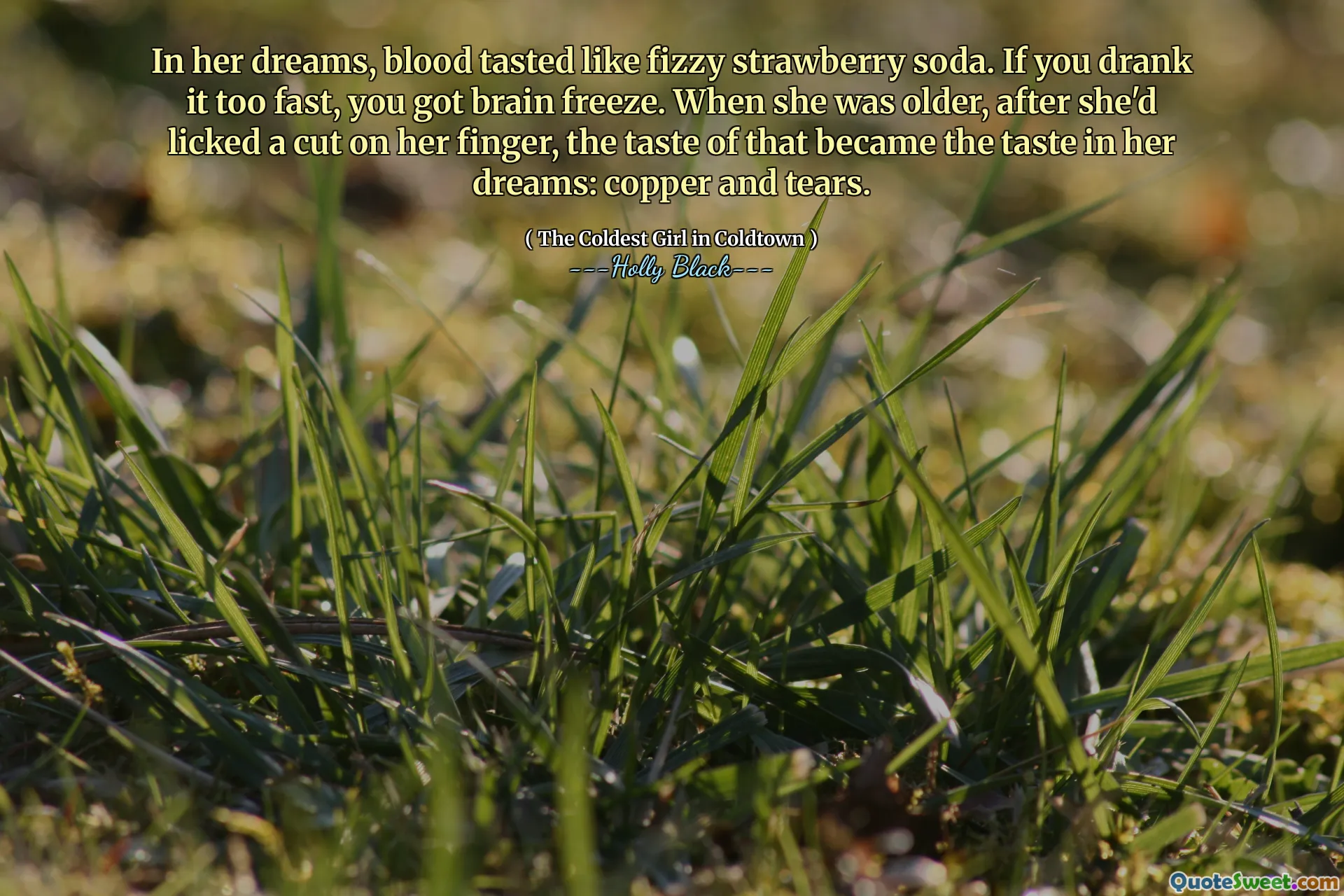
In her dreams, blood tasted like fizzy strawberry soda. If you drank it too fast, you got brain freeze. When she was older, after she'd licked a cut on her finger, the taste of that became the taste in her dreams: copper and tears.
This evocative quote from Holly Black's The Coldest Girl in Coldtown elegantly captures the complex relationship between innocence and experience, blending the surreal and the mundane through the metaphor of taste. The initial image of blood tasting like "fizzy strawberry soda" invokes a childlike wonder—an innocence that sweetens and sanitizes something inherently dark and visceral. There's a whimsical, dreamlike quality to this portrayal, suggesting a world where dangers are softened by imagination, and even something as frightening as blood can be reframed as something playful and harmless. Yet, as the passage continues, there is a poignant shift marking the loss of this innocence. The taste transforms from candy-like effervescence to the more realistic "copper and tears," a stark sensory reminder of pain, vulnerability, and the complex emotions of growing up. The act of licking a cut on a finger is both literal and symbolic here; it speaks to the attempt to soothe or understand one's wounds, physical or emotional. This transition in taste reflects the broader human experience—where the sweetness of youthful naivety gradually yields to the bittersweet realities of adult life. By anchoring an abstract emotional change in sensory details, Black invites the reader to deeply feel this passage of innocence fading. It is a powerful commentary on memory, pain, and the ways our perceptions are shaped by lived experience. Overall, this quote succinctly captures a haunting beauty—showing how dreams, much like life, swirl between sweetness and sorrow, fantasy, and harsh truths.






